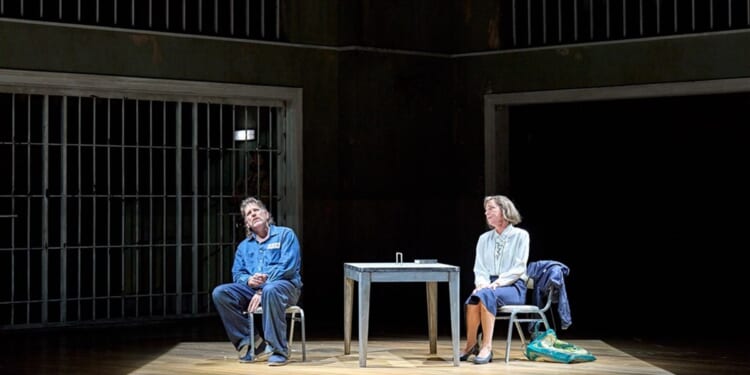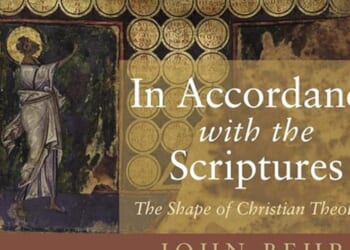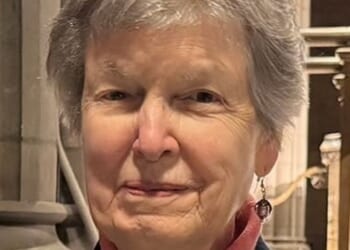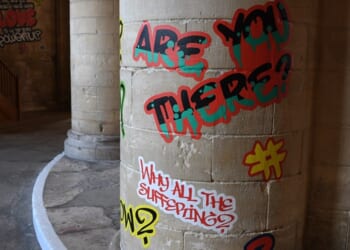SISTER HELEN PREJEAN, the renowned American campaigner against the death penalty, published her bestselling memoir Dead Man Walking in 1993. Starring Susan Sarandon and Sean Penn, the Oscar-winning screen adaptation that soon followed combines separate sagas of two death-row murderers counselled by Sister Helen, Elmo Patrick Sommier, and Robert Lee Willie. Penn’s composite fictional convict is called Matthew Poncelet. He has committed Sonnier’s crime — an unspeakably savage attack on two teenage sweethearts in 1977 — but possesses Willie’s character: arrogant, ignorant, not lacking in charm, but still unremorseful.
Jake Heggie’s compelling operatic take (first performed in 2000) on this story broadly reproduces the film’s plot, but with additional dramatic licence. Now named Joe De Rocher, the anti-hero is a rapist as well as a killer who falsely blames his crimes on his brother (also in jail, but not facing execution). He writes to Sister Helen more out of self-pity than any urge to repent: the unlikely bond that develops between them speeds De Rocher’s eventual confession just before his death by lethal poisoning. Last-minute redemption is thus apparently secured. Given the prisoner’s instability, however, audiences are left guessing till the end.
Neither the film nor the opera is thus chiefly about the death penalty as such. The focus is, rather, on whether the truth can set you free: John 8.32 is repeatedly referenced. I was reminded of William Camden’s “Epitaph for a Man Killed by Falling”, said to encapsulate Christian hope of new beginnings even as someone breathes their last: “Betwixt the stirrup and the ground,/ Mercy I ask’d; mercy I found.”
English National Opera’s production of what is probably Heggie’s most celebrated work deserves high praise. Yes, subtleties of characterisation in the film are lost. On screen, Sarandon’s character (like Sister Helen in real life) is repeatedly accused of naïvety or worse in relating more to murderers than to their victims’ families, while Penn expertly portrays a hardened criminal’s poverty of spirit beneath all the posturing. Terrence McNally’s libretto can only partly reproduce nuance of this kind.
But the score — an accomplished crossover between mainstream opera and musical theatre, which Heggie has made his trademark — nevertheless brings fresh textures to the drama, especially in the many scenes involving conflict and grief. His large talent partly consists in a musical register combining sophistication with primary colours. The melodic idiom, including an abundance of hectic glissandos for strings and brass, is often reminiscent of Benjamin Britten. Michael Mayes as De Rocher and Christine Rice as Sister Helen portray a budding friendship with great actorly as well as musical skill; the rest of the cast are also excellent.
I have one cavil. Christian elements in the story are sometimes a bit unfocused. Like its screen counterpart, the opera lays much emphasis on Sister Helen’s gospel-based motivation. But she appears timid in the face of others — bereaved families, public officials — whose sense of right and wrong is rooted in eye-for-an-eye attitudes. Jesus’s explicit rejection of the lex talionis seems underemphasised.
The core point — that while justice is the apex virtue for a secular liberal, this is not so for a Christian, who must prize forgiveness above all — eventually emerges without fanfare. Unwittingly, perhaps, the prophetic voice of Sister Helen herself is somewhat muffled in consequence.
At the English National Opera, London Coliseum, St Martin’ Lane, London WC2, until 18 November. Box office: phone 020 7845 9300. eno.org
















